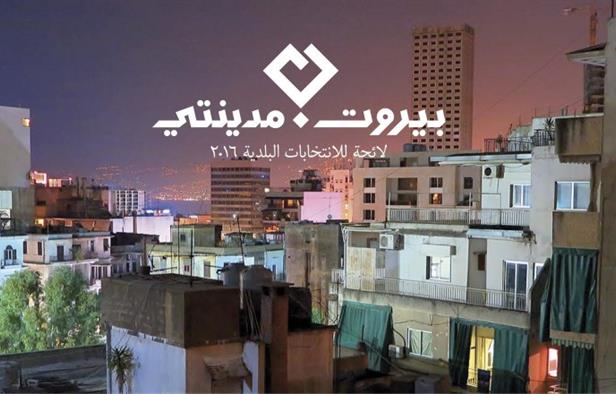For Beirut Madinati, now what?
Hussain Abdul-Hussain/Now Lebanon/May 11/16
Building on the momentum from the municipal elections, Beirut Madinati must transform from a civil society group to a real grass roots political movement
Beirut Madinati
Rarely has an electoral defeat generated such hope among supporters as has that of Beirut Madinati, which won 40 percent of Beirut’s electorate in recent municipal elections, but still lost all 24 council seats thanks to an obsolete “first-past-the-post” system. Had election been contested on a proportional basis, the oligarchy’s Beirut for Beirutis list would have collected 14 seats and Beirut Madinati 10. Proportional representation would also have increased the number of women in Beirut’s new council from three to eight.
Beirut Madinati exceeded expectations. It beat the three Christian oligarchs in the First District where it won 60 percent of the vote. It surprised former Prime Minister Saad Hariri in his home district, the Third District, where one in three Sunnis abandoned him and voted for Beirut Madinati. After the votes of 80 thousand Beirutis were tallied, Beirut Madinati came only seven thousand votes behind Beirut for Beirutis.
Word has it that leaders of Beirut Madinati had already considered creating a grass root movement before election. With the above results, they are probably thinking of keeping the momentum.
Going forward, Beirut Madinati should drop its civil society tag, which it lost the minute it announced its candidacy. Perhaps the confusion stems from the Lebanese misusage of the word civil to mean non-sectarian. But the campaign was, by definition, political.
Beirut Madinati should not shy away from engaging in politics, which most Lebanese mistake for tribo-sectarian feuds. Politics means debating policies and advocating for, or against, them. The nine points on Beirut Madinati’s platform were policy promises. Had the ticket won, it would have had to employ politics to put policies into effect, which includes building consensus around them, budgeting for their execution and pressuring Lebanon’s dominating oligarchs to accept them.
Beirut Madinati should not underestimate the oligarchy. Municipal elections were held on an off year, as opposed to a parliamentary election year, when oligarchs use a dizzying amount of money and employ acute sectarian rhetoric to fire up their tribal bases. Lebanon’s voter turnout has always been higher in parliamentary elections than municipal ones. Higher turnout gives oligarchs the advantage.
Beirut Madinati should not transform itself into a political party with founding principles and a defined leadership. It should rather maintain a loose structure, like that of America’s Tea Party. The network behind Beirut Madinati has been alive for over two decades. Under Assad’s rule of Lebanon, it was either coopted or persecuted. Starting 2005, these activists were split into March 8 and March 14. Yet over the past few years, they have abandoned the dichotomy and converged onto campaigns like YouStink and Beirut Madinati.
While political, the new grass roots movement should stay away from Lebanon’s politics. Let March 14 and March 8 fight all they want over the nation’s top three spots — president, speaker and prime minister — or over who is right in the conflict between the Yemeni government and its Houthi opponents. A Beirut Madinati movement, perhaps upgraded to Lebanon Watani, should remain focused on the least divisive Lebanese-centric issues.
For instance, civil society — with support from foreign governments and NGOs — often presented recommendations for “electoral reform,” including minor steps like using official pre-printed ballots and major ones such as replacing the current “majoritarian” system with a more representative proportional one.
Environmental issues also win consensus often, and so do campaigns for the improvement of public services, such as electricity and the internet.
Beirut Madinati should not try to be what it is not. The movement is elitist, and there is no shame in the elite driving change and setting trends.
Beirut Madinati should also understand that it has a lot of room to grow, such as sharpening its rhetoric and making its public figures rehearse talking points. Since the movement promises to introduce a fresh political style, it can show the Lebanese how it is principled and sticks to its script, instead of engaging in endless bickering over futile semantics and punditry.
The 2016 municipal election might have caught the oligarchy off guard. But should Beirut Madinati turn itself into a serious movement, it should expect the oligarchs to turn up the heat, which will include all sorts of threats — form bullying supporters to cutting them loose at their workplace or within their communities.
After giving the oligarchy a political beating, Beirut Madinati should expect things to get harder. But with the stamina and perseverance that it has shown so far, it stands a chance in causing some dents, and for that, it deserves further support.






















